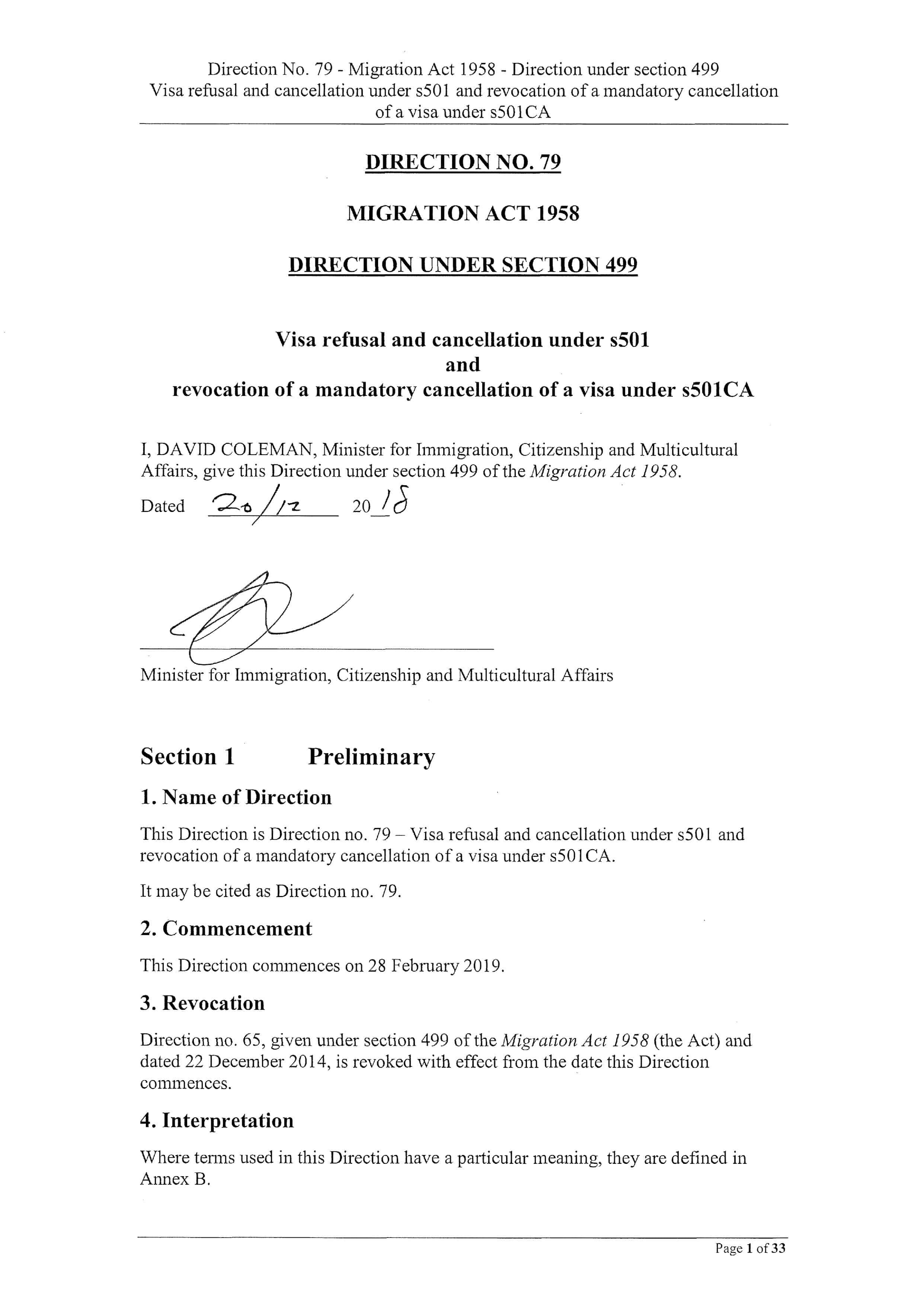Good question! And if you are living in Australia and have been sentenced to a term of imprisonment of 12 months or more, you really need to cast your eyes over or get your hands on a copy of the Ministerial Direction 79. Interestingly, if you do a general sweep of the internet (ahhh, Google!), you will have difficulty finding a copy of the Direction. This is bizarre given that the effects of the Ministerial Direction 79 are significant and widespread (check out the table of relevant stats below!).
In any case, we’ve made a copy of the Ministerial Direction 79 available here.
TABLE 1: VISA DECISIONS UNDER SECTION 501
Source: Department of Home Affairs,Submission to Joint Standing Committee on Migration, Inquiry into review processes associated with visa cancellations made on criminal grounds, [Submission no. 29], 11 May 2018, p. 4.
Essentially, when a delegate is considering cancelling or refusing a visa under the character provisions outlined at s501 of the Migration Act, that decision maker must consider Ministerial Direction No. 79 which sets out binding considerations for decision-makers in exercising this discretion. Interestingly, the Minister for Immigration is not bound by these considerations.
Direction No. 79 commenced on 28 February 2019 and replaced the previous Direction No. 65. While the new Direction is not significantly different to the former one, it now provides that in considering the nature and seriousness of the non-citizen’s criminal offending and other serious conduct, decision-makers must have regard to (amongst other matters) ‘the principle that crimes of a violent nature against women or children are viewed very seriously, regardless of the sentence imposed’.
The Direction emphasises the principle of protecting the Australian community, and requires decision-makers to give primary consideration to:
the nature and seriousness of the non-citizen’s conduct to date
the risk to the Australian community should the non-citizen commit further offences or engage in other serious conduct
whether the cancellation or refusal is in the best interests of any minor children in Australia affected by the decision
expectations of the Australian community.
Secondary considerations that must be taken into account, when relevant, include:
whether international non-refoulement obligations arise;
the strength, nature and duration of the person’s ties to Australia;
the impact of the cancellation or refusal on Australian business interests and/or on members of the Australian community (such as victims of the non-citizen’s criminal behaviour); and
the extent of any impediments the non-citizen may face if removed.
The considerations are complex and different levels of weight will be attributed to each of the considerations, depending on the individual’s circumstances. It’s a delicate balancing act, and because of that we say that It is important that you seek legal advice so that your best case is put before the decision-maker.


![TABLE 1: VISA DECISIONS UNDER SECTION 501 Source: Department of Home Affairs,Submission to Joint Standing Committee on Migration, Inquiry into review processes associated with visa cancellations made on criminal grounds, [Submission no. 29], 11 May …](https://images.squarespace-cdn.com/content/v1/58d4ad8f2994cafbe9efde16/1583071246616-SS29X4VT6TPXE4XEHKTM/Section+501+Visa+Cancellations)
